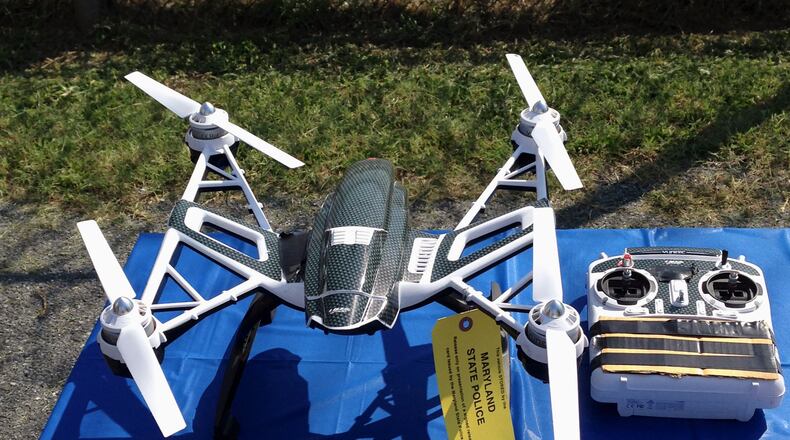With state-level guidelines for Federal Aviation Administration rules settled, legislation that would regulate state use of drones could soar toward the governor’s desk.
So says state House Transportation Chairman Kevin Tanner, the sponsor of House Bill 481, which would pre-empt local governments from enacting regulations regarding drone activity on top of state law.
“It basically allows the state to retain control over passing any laws or rules that would govern unmanned aircraft in the state,” he said. “I think it will pass. The governor’s office has signed off on the legislation, so they support it.”
Gov. Nathan Deal vetoed a broader bill last year that, in addition to preventing local governments from regulating operation and testing of drones, would have banned weaponized drones, clarified privacy protections and limited the use of drones by law enforcement officials for gathering evidence in private places.
In issuing his veto, Deal said he was "appreciative" of the intent of the legislation but believed signing such a bill "would create a layer of state regulation" that could be invalidated by the FAA in the future.
He added that such “layers of potentially inconsistent rules” could come into conflict with “what the business community, the science and technology community, and legislative leaders sought to create by drafting this legislation.”
Deal also established a commission to “propose state-level guidelines until the new FAA regulations are released.” The findings from the study commission provided the framework for this year’s bill.
"The only step that we would advise the General Assembly to take right now would be law that would pre-empt local governments from enacting additional ordinances," said Lewis Massey, a lobbyist and former Georgia secretary of state who served on the commission.
The bill was designed to attract technology companies, such as Google and Amazon, that are experimenting with drones to know they are “welcome in Georgia,” Massey said.
The idea, he said, was to make one clear set of statewide rules so the industry is able to “grow and flourish in the state.” Massey said the Association County Commissioners of Georgia and Georgia Municipal Association, which represent local government in the state, “have not come out in support,” but they’re also “not opposing the bill.”
Lawmakers frequently tout rankings that show Georgia is a top state in which to conduct business in order to draw political support; drone legislation is no exception.
"We want to make sure we're not doing anything to hamper the opportunity for the industry to grow in a very positive way, whether it's unmanned aircraft or autonomous vehicles," Tanner said, referring to Senate Bill 219, which would regulate self-driving cars on public roads.
The bill also includes a provision for more recreational activity, such as drone use over Mercedes-Benz Stadium.
“We made some exceptions to the pre-emption, and one of those deals with a city or county (that) can pass an ordinance that would govern an FAA restriction. This would just allow the city of Atlanta to pass an ordinance that would allow their local police officers to enforce that FAA restriction,” Tanner said. “So it would comply with FAA rules, but that would be the only type of ordinance they could pass — one that enforces an FAA restriction.
The additional provisions from last year’s bill may show up in future legislation, but Tanner said only time will tell.
“We’ve got to watch the technology,” he said, “and we’ve got to see how the technology develops.”
About the Author





